The views expressed in our content reflect individual perspectives and do not represent the authoritative views of the Baha'i Faith.
Traditionally, women make up the majority of people of faith.
Go to just about any place where people gather to worship, and you’ll find that the female believers usually outnumber the males. Study the history of religion, and you’ll see that many of the major world faiths initially spread much more quickly among women than they did among men. Women typically become the early adopters of a new belief system, in larger numbers than men, and then continue to support and work hard for their Faith. Researchers, pollsters and religious historians have found this fact true across many faiths, historical periods and geographic regions.
Why?
Nobody really knows, but the best answers I’ve ever found to this complex and puzzling mystery came from working with a remarkable man – George Gallup, Jr., the pollster, scientist and theologian who ran the Gallup Organization. My friend George and I never got tired of talking about faith and its deep, mystical meanings.
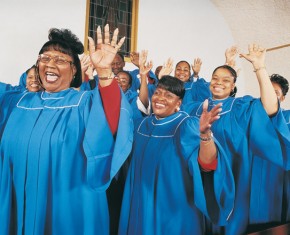
A lay Episcopalian youth minister who trained for the priesthood and received a degree in religion from Princeton, George Junior’s main interest in polling focused on faith and spirituality, long before anyone else paid attention to the subject from a scientific perspective. He wrote several books on religion and belief, and co-founded the Princeton Religion Research Center to explore “the nature and depth of religious commitment.”
For multiple decades, George Jr. and his father George Sr., the founder of modern polling research, asked people questions about faith. Since its founding in 1935, the Gallup Organization has conducted literally hundreds of scientific polls in multiple locations around the world on the subject of religion, making their consistent research the gold standard in the field. George Jr., in an analysis he wrote in 2002, said: “A mountain of Gallup survey data attests to the idea that women are more religious than men, hold their beliefs more firmly, practice their faith more consistently, and work more vigorously for the congregation.”
In his books and in our long, inspiring discussions, George Junior maintained that more women have faith (and that women have more faith) because:
- Women are mothers, and mothers tend to spend more time raising children, which often means overseeing their spiritual education and development.
- Though many women now work outside the home, in the past women often had more flexible daily schedules, permitting more religious involvement during the week. Also, the vast majority of childcare workers are women.
- Women may relate to others better than men, and tend to be more open about sharing deeply-held beliefs as well as personal problems. A higher proportion of women than men say they have a best friend in their faith group.
- And finally, the Gallup Organization’s polling had convinced George that women are basically more sensitive to the promptings of their souls than men, more attuned to the spiritual nuances of life, and more experiential in their beliefs.
I miss my friend George, who passed into the next world a couple of years ago, but I’m happy to report that his pioneering work on religion has caught fire. Now several other polling and research organizations regularly study the importance of faith and its impacts, among them the Pew Forum on Religion and Public Life. After interviewing more than 35,000 U.S. adults, Pew Forum researchers recently found that:
- More women (86%) than men (79%) say they have a religion.
- More women (77%) have absolute certainty there is a God or a universal spirit than men (65%); and more women believe in a personal God — 58% vs. 45%.
- More women than men pray daily: 66% vs. 49%.
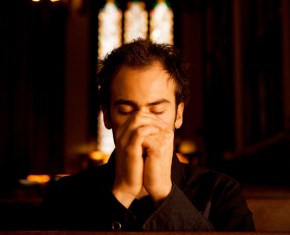
These scientific findings echo the Baha’i teachings on the subject:
The world in the past has been ruled by force, and man has dominated over woman by reason of his more forceful and aggressive qualities both of body and mind. But the balance is already shifting; force is losing its dominance, and mental alertness, intuition, and the spiritual qualities of love and service, in which woman is strong, are gaining ascendancy. Hence the new age will be an age less masculine and more permeated with the feminine ideals, or, to speak more exactly, will be an age in which the masculine and feminine elements of civilization will be more evenly balanced. – Abdu’l-Baha, quoted in J. E. Esslemont’s Baha’u’llah and the New Era, p. 149.
If women received the same educational advantages as those of men, the result would demonstrate the equality of capacity of both for scholarship. In some respect woman is superior to man. She is more tender-hearted, more receptive, her intuition is more intense. – Abdu’l-Baha, Paris Talks, p. 161.
The Baha’i Faith extols and promotes the essential equality of women and men, but it also recognizes what the researchers and pollsters have now begun to document a hundred years later – that women have an increased level of receptivity to the mystical and the unknown, and to living a life of faith. Given that established fact, one obvious question arises: What can men learn about faith from women?
You May Also Like
Comments



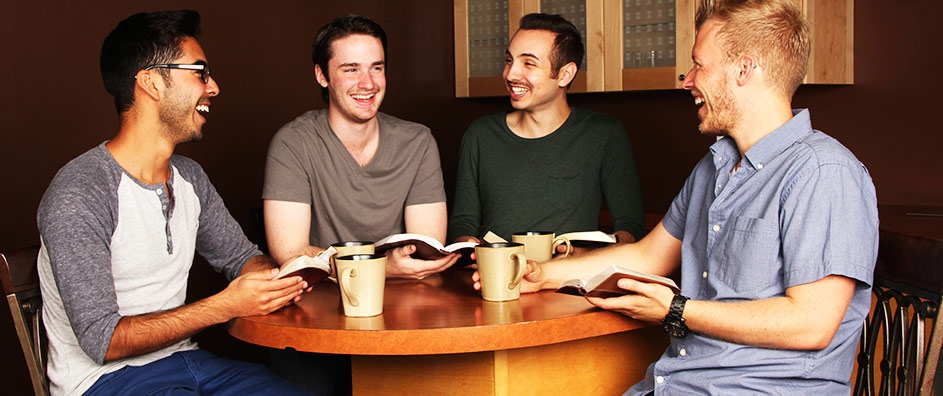

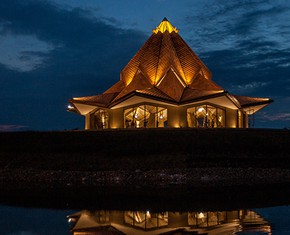







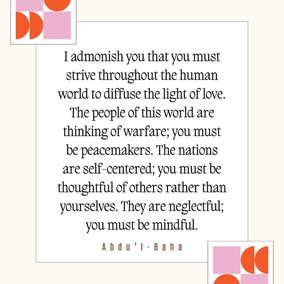
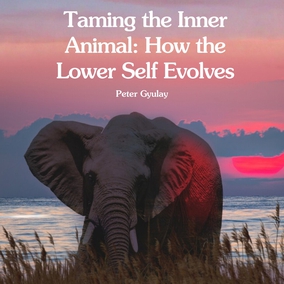
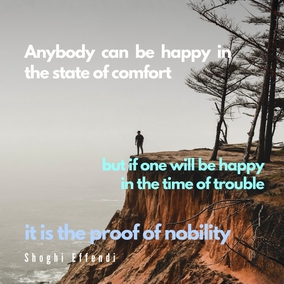

"Mark’s relentless criticism of Peter, of James and John, of the Twelve, and especially of Judas was a necessary preparation for answering one very important question concerning the incident in 14:3–9. That story opens with this action by an unnamed woman: “While he was at Bethany in the house of Simon the leper, as he sat at the table, a woman came with an alabaster jar of very costly ointment of nard, and she broke open the jar and poured the ointment on his head” ...(14:3). The account continues by emphasizing the very great value of the ointment; it “could have been sold for more than three hundred denarii, and the money given to the poor” (14:5). To use ointment worth a year’s wages for a laborer was certainly kind and generous even to the point of extravagance and certainly was “a good service” for Jesus (14:6). But why does she deserve or her action receive this absolutely unique and stunningly extraordinary accolade from Jesus: “Truly I tell you, wherever the good news is proclaimed in the whole world, what she has done will be told in remembrance of her” (14:9). When the preceding verse is read against that continuous criticism of the Twelve just noted, the significance of her action becomes clear. “She has done what she could,” says Jesus, “she has anointed my body beforehand for its burial” (14:8). She alone, of all those who heard Jesus’s three prophecies of his death and resurrection, believed him and drew the obvious conclusion. Since (not if) you are going to die and rise, I must anoint you now beforehand, because I will never have a chance to do it afterward. She is, for Mark, the first believer. She is, for us, the first Christian. And she believed from the word of Jesus before any discovery of an empty tomb.
Jesus has been telling the Twelve what leadership entails from Caesarea Philippi to Jerusalem and has gotten nowhere with them. But this unnamed woman believed him and, presumably, Mark locates her among those others beside the Twelve who have been accompanying him on the way. “There were also women looking on from a distance; among them were Mary Magdalene, and Mary the mother of James the younger and of Joses, and Salome. These used to follow him and provided for him when he was in Galilee; and there were many other women who had come up with him to Jerusalem” (15:40–41). She was both one of those “many other women” and the first and only one who believed what Jesus had been telling them repeatedly. Hence that supreme and unique praise for her as the first believer and the model leader. Mark’s intercalation, or frame, is also now clear. The unnamed woman represents the perfect disciple-leader and is contrasted with Judas, who represents the worst one possible.
Borg, Marcus J.; Crossan, John Dominic (2009-03-17). The Last Week